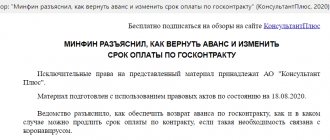By borrowing a drill from a neighbor or, on the contrary, giving him our charger for a dead car battery, we ourselves, without knowing it, enter into a contractual relationship, namely, we unwittingly enter into an agreement for free use (sample). That is, we do not take money for it and do not receive any material benefits.
But what about something whose price can be significant? For example, if a car or apartment is transferred for use. In this case, it is still recommended to draw up a free contract.
Features of the agreement
Such an agreement is also called a loan. Both terms can be used. According to it, one individual - called the Lender - transfers to another - the Borrower - any thing for temporary use without charging a fee for it. That is, free of charge. The list of such things is huge: from the already mentioned drill to an entire factory. The main condition is the non-consumability of the transferred item. In other words, so that the latter does not change its properties and does not disappear during use.
Thus, food products, gasoline and other fuels and lubricants, semi-finished products and the like are not eligible for loans.
The lender is either the owner of the thing being transferred or his authorized representative. According to the law, the owner (proprietor) of a thing (property) has the right to dispose of it at his own discretion: put it up for sale, donate it, and, among other things, transfer it to another individual for free use. Any legally capable individual can act as a borrower. The main difference between this agreement and others is the gratuitousness of the transaction itself, where the owner does not receive any material preferences.
So, as mentioned above, the lender transfers a specific thing to the borrower free of charge and temporarily, and the latter undertakes to return it in the same condition (taking into account reasonable wear and tear).
If the agreement does not mention gratuitousness, then, by default, it is considered that a lease agreement (lease agreement) has been concluded.
Agreement for free use of residential premises
AGREEMENT for free use of residential premises No.
g.
"" g.
Citizen, passport (series, number, issued) residing at the address, hereinafter referred to as “
Lenter
”, on the one hand, and citizens (passport (series, number, issued)) and (passport (series, number, issued)), those living at the address, hereinafter referred to as “
Tenants
”, on the other hand, hereinafter referred to as “
Parties
”, have entered into this agreement, hereinafter referred to as the “Agreement”, as follows:
SUBJECT OF THE AGREEMENT
1.1. Under this agreement, the Landlord undertakes to provide the Tenants with free use for living space owned by the Landlord - an apartment with a total area of sq.m., consisting of x rooms, located at the address: . Tenants undertake to accept the specified residential premises, and in the event of termination of this agreement, to return the premises in a condition suitable for habitation, taking into account normal wear and tear.
1.2. The residential premises specified in clause 1.1 of this agreement belong to the Landlord on the right of ownership on the basis of (specify the title document, its details), which is confirmed by the Certificate of State Registration of Rights dated "" year, series, No., registration record in the Unified State Register of Rights on real estate and transactions with it No. dated "" year.
1.3. The lessor guarantees that the transferred premises are not subject to collateral, are not under arrest or prohibition, and are not transferred for use to third parties for any reason.
RIGHTS AND OBLIGATIONS OF THE PARTIES
2.1. The Landlord undertakes to provide the Tenants with residential premises in a condition consistent with the terms of this agreement and its purpose, and also bear all costs of maintaining the residential premises, including paying for utilities at its own expense.
2.2. Employers undertake:
a) use the residential premises strictly for their intended purpose (for living);
b) keep the living quarters in good condition;
c) not transfer the residential premises for use to third parties without the prior consent of the Landlord;
d) at his own expense, carry out current and major repairs of residential premises;
e) perform other duties arising from the right to use residential premises.
2.3. Tenants have the right at any time, at their own expense and at their own discretion, to make any improvements to the residential premises in the prescribed manner without the prior consent of the Landlord.
RESPONSIBILITY OF THE PARTIES
3.1. The lessor is responsible for defects in the premises that he intentionally or through gross negligence did not stipulate when concluding this agreement.
3.2. Tenants bear the risk of accidental death or accidental damage to the premises if the premises are destroyed or damaged due to the fact that the Tenants used it for other purposes or transferred it to a third party without the prior consent of the Landlord.
REFUSAL OF THIS AGREEMENT AND ITS EARLY TERMINATION
4.1. Each party has the right to cancel this agreement at any time by notifying the other party in writing one month in advance.
4.2. The Lessor has the right to demand early termination of this agreement in cases where the Tenants:
- use the premises not in accordance with this agreement;
- do not fulfill duties to maintain the premises in good condition;
- significantly worsen the condition of the premises;
- without the consent of the Landlord, they will provide the premises for use to a third party.
4.3. Tenants have the right to demand early termination of this agreement:
- upon discovery of deficiencies that make the normal use of the premises impossible or burdensome, the presence of which they did not know and could not know at the time of concluding the contract;
- if the premises, due to circumstances for which the Tenants are not responsible, turn out to be in a condition unsuitable for use;
- if the Landlord fails to fulfill the obligation to transfer the premises.
4.4. During the period of validity of this agreement, the Landlord has the right to alienate the premises or transfer it for paid use to a third party. Transfer of ownership of the premises to a third party does not entail the termination of this agreement.
OTHER CONDITIONS
5.1. This agreement is considered concluded from the moment it is signed by both parties and is valid for up to a year.
5.2. In all other respects not provided for in this agreement, the parties are guided by the current legislation of the Russian Federation.
5.3. This agreement has been drawn up in three copies, each having equal legal force, one for each of the parties.
DETAILS AND SIGNATURES
Landlord
:
Signature:
Employer
:
Signature:
Employer
:
Signature:
Transfer conditions
Items transferred under the contract must be in good condition, suitable for the intended use and accompanied by all the required documentation and accessories. Otherwise, the borrower has the right to either request the attached documents and accessories, or terminate the transaction (with the lender paying the costs incurred by the other party).
If the lender refuses to provide the thing itself after the conclusion of the transaction, the other party has the right to demand termination of the contract and compensation for costs incurred as a result of this refusal.
If defects are detected in the transferred item, the borrower has the right:
- demand that defects be eliminated free of charge;
- eliminate it yourself and demand reimbursement of expenses incurred;
- demand early termination of the contract with reimbursement of expenses incurred.
The transfer of an item from the lender to the borrower is recorded by signing the transfer act.
Use and return
The person who has received the item for loan use is obliged to keep it in working order and pay for its maintenance. And not only carry out routine maintenance work, but carry out major repairs. Except in cases where the contract specifically specifies rules for the use of the transferred item that differ from the usual rules.
Risks associated with accidental destruction or damage to the transferred item are the responsibility of the owner, except for the following circumstances in which the item was destroyed or damaged, namely:
- the item was used for other purposes or in violation of the contract;
- the item was transferred to another person without the knowledge of the owner;
- there was an opportunity to prevent such consequences, but the borrower did not take advantage of it.
Responsibility of the owner of the premises when transferring an apartment for free use
In accordance with Art. 693 of the Civil Code of the Russian Federation, the lender is responsible for failure to provide information about the presence of defects in the property transferred to the borrower under a gratuitous use agreement. If such deficiencies are discovered, the borrower has the right to demand from the owner:
- free elimination of deficiencies;
- reimbursement of expenses incurred by the borrower in eliminating these shortcomings;
- early termination of the contract for gratuitous use with compensation for actual damage incurred.
The owner of the apartment (lender) is not responsible for shortcomings that occurred and about which the borrower was informed when concluding the agreement. If the borrower is ready to eliminate the deficiencies of the residential premises on his own at the expense of the owner, if he agrees, the borrower must be officially notified of this possibility (Clause 3 of Article 693 of the Civil Code of the Russian Federation). If the defects that have arisen in the residential premises are irreparable, that is, they are the result of uneven shrinkage of the foundation, the formation of cracks and deformations in the supporting structures and other significant deficiencies that threaten the life and health of the residents, the borrower has the right to terminate the agreement for gratuitous use unilaterally.
Nuances of drawing up a loan agreement, the validity period of the rental agreement
Legal documents can indicate the period for which the housing is transferred for use to the borrower. If the term is not specified or this is not necessary, then it is generally accepted that the loan is given for an indefinite period. However, in this case, both the lender and the borrower can terminate the agreement at any time.
This type of legal act does not need to be notarized. No stamps required. All that remains is the signatures of both parties. The loan agreement is concluded in writing. If the borrower and the lender do not insist on a paper version, then the transaction takes place orally.
What is the tax refund when buying real estate with a mortgage is detailed in this article.
Who has the right to inherit an apartment after the death of the father is detailed in this article.
What documents are required to register an inheritance for an apartment are detailed here: https://ruleconsult.ru/grazhdanskoe/nasledstvo/dokumenty-dlya-vstupleniya-na-kvartiru.html
In any case, it is recommended to conclude an agreement, since with the help of this legal act specific norms can be approved.
The main advantages include the following rules of transfer and use:
- Clear recording of all conditions. Both parties sign and undertake to follow all instructions. This is a guarantee of reliability and safety.
- The borrower, according to the agreement, undertakes to pay utilities and other payments significant for housing.
- Guaranteed safety of material goods. The housing is given for use, and the borrower undertakes to monitor the condition of all things that belong to the lender and protect them from breakage and disappearance. If any item is lost or breaks, the borrower is obliged to compensate for the damage.
- Registration of the borrower at the location of the housing provided under the loan agreement. The person who is given housing has the right to temporarily register there, thereby officially registering his place of residence.
"Underwater rocks"
When drawing up such a legal document, you may encounter some pitfalls. By providing living space for use for a certain time, the lender does not have the right to evict the tenant, even if the latter neglects the rules. If the agreement is drawn up and certified by the signatures of both parties, then the law most often takes the side of the borrower.








